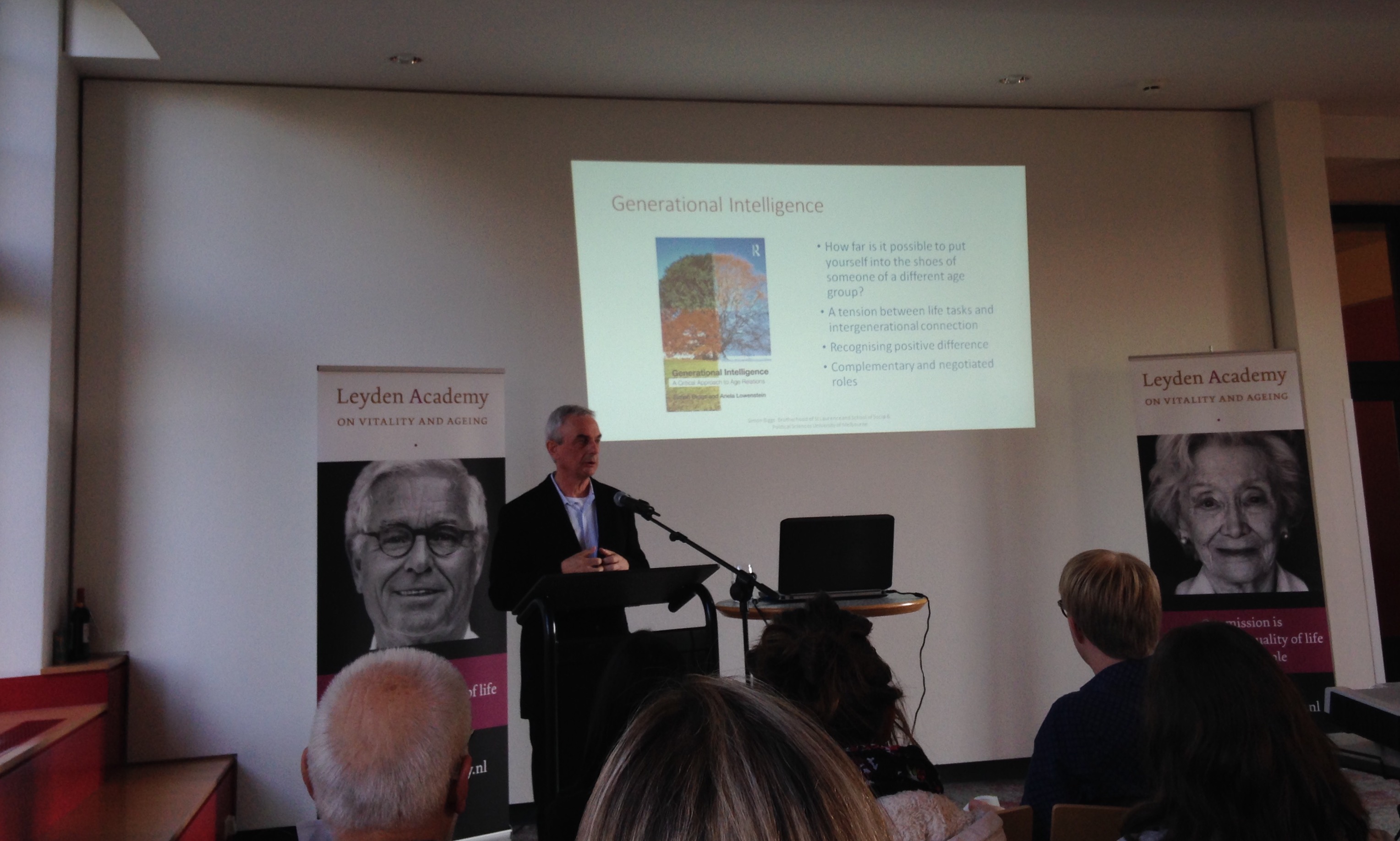“The notion that work makes you healthy is wishful thinking.” In his Masters of Ageing-lecture at Leyden Academy on 13 October 2015, professor Simon Biggs challenged the international consensus on how society should respond to an ageing population. According to Biggs, it’s not just about keeping people employed and productive for longer.
Economical approach ignores different priorities
Biggs, Professor of Gerontology and Social Policy at the University of Melbourne, started his lecture explaining that our demography is shifting from the traditional triangle to a column structure (“or a cocktail shaker, if you will”). Not just in the West, but even more rapidly in many developing countries. The dominant view on how to cope with this demographic shift is, as the OECD puts it, to ‘live longer, work longer’. This sounds self-evident: the state pays fewer pensions, welcomes more workers, and earns more income taxes. Whether jobs are available and ageism can be reduced in the workplace, is one thing. But Biggs offers an alternative discourse. He argues that this economic approach ignores changes in the life course: young and older adults have different priorities as they move through life. The main question should be how we can recognize these positive differences and generate empathy and intergenerational complementarity.
A call for ‘precarious solidarity’
Biggs pointed out that young and older generations both face many uncertainties: young people have trouble finding a decent paying job, buying a house, starting a family. Older adults face shifting pension ages, high 55+ unemployment rates, pressure on the healthcare system. Biggs sees this shared insecurity as a potential source of solidarity. He calls for “precarious solidarity”: stop seeing the old and young as equals competing on the labour market, start recognizing and embracing their differences. To release the generational potential, Biggs calls for durable solutions that help all generations, utilizing the complementary skills that different age groups bring to a diverse number of settings. This will enable us to move “from a precarious to a new virtuous circle.”
For more information, please read Simon Biggs’ article ‘Adapting to an Ageing Society – the need for cultural change’ (from: Policy Quarterly, Vol.10 Issue 3, August 2014).
If you would like to stay informed about our lectures, please send us an email.



